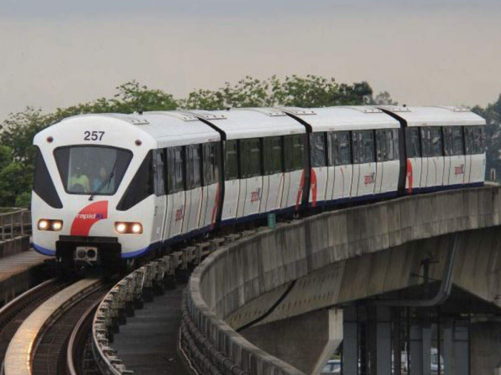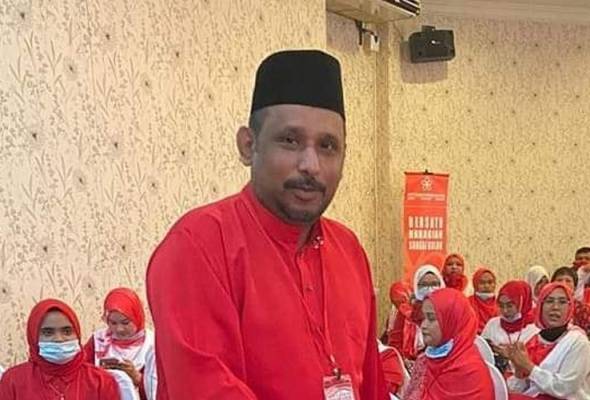Editor’s note: To further clarify, the conversation between the writer and his friend was about Bombardier trains used by another operator, and not ERL.
Given that ERL claims it has a 99.7% on-time performance record, I would not dispute the company’s claim, except that I believe my source had no vested interest, when it was a mere conversation over a meal, when he just mentioned in passing that he was shocked to see the condition of the trains during the overhaul, which he was, of course, referring to Bombardier set of trains operated by another company, and not ERL’s Siemens trains.
I WISH to thank Express Rail Link (ERL) Sdn Bhd deputy vice president for marketing and sales management Sheila Shamsudin for her response to assure us that ERL is well-managed.
It is always reassuring when we, as concerned citizens, are informed that there is indeed a scheduled overhaul of ERL trains every 1.5 million km.
This, I believe, is the manufacturer’s requirements to ensure the efficiency of each train set.
Given that ERL claims it has a 99.7% on-time performance record, I would not dispute the company’s claim, except that I believe my source had no vested interest, when it was a mere conversation over a meal, when he just mentioned in passing that he was shocked to see the condition of the trains during the overhaul, which he was, of course, referring to Bombardier set of trains operated by another company.
Bombardier is a reputable company, but it is the culture of the maintenance that we were talking about. The same set of train, the same model from the same company could still be running for another 10 to 20 years, if there was a good maintenance culture.
Frequent breakdowns, major concern
With the frequent breakdowns of the LRT, I would like to urge the minister to request for every train operator to provide a list of its Mean Time Before Failure (MTBF) spare parts, and ask to view the Planned Maintenance System (PMS) of each train operator.
For the laymen, MTBF simply means the running hours before a component or part finally breaks down.
As for the maintenance of airlines and oceanliners, the PMS is crucial, but such a system is also available for the scheduled maintenance of an entire fleet of trains. When a particular component of the engine has reached its maximum number of running hours (or MTBF), the PMS will immediately alert the maintenance team to change the part.
Based on my research, Singapore Mass Rapid Transit (SMRT) has recently completed implementing Bentley’s Predictive Decision Support System (PDSS) to manage all its train sets. There are also many other systems available, on which the experts can advise.
However, a PMS is nothing new, except to say that for an oceanliner, because it is out in the ocean, it has to carry enough spare parts to allow the ship to keep sailing to its destination.
Do our train operators, especially Keretapi Tanah Melayu (KTM) with purchases of its trains from three different companies over the years, always carry enough MBTF spare parts?
If not, were purchases supposed to have been made but the supply never reached the store? Without the MBTF parts, frequent breakdowns would mean high downtime.
If the minister can now make a visit to the store where these spare parts are kept and assess its adequacy, it would surely provide him with a better insight into why downtime is high and breakdowns happen so frequently, especially for LRT and KTM.
Keep up the good work!
Transport Minister Anthony Loke Siew Fook should not micromanage as a minister, but without the management by walkabout (MBWA) that he is practising now, he would not be able to get to the root of the problem and develop better policies to manage a good system that will last.
On the MTBF inventory, I would say an audit may be necessary to ensure that purchases of spare parts are backed up by the stocks in place. An audit team backed up by industry professionals will ensure that maintenance is carried out efficiently and not just on paper.
If heads have to roll, so be it, but let’s move on to ensure that our public transportation system is capable of meeting the demands for efficient public transportation in a country that has an annual growth rate of 2.3%.
Based on a discussion I had with a former deputy minister of housing and local government, the population of Malaysia will reach between 50 and 60 million people in just two decades.
With urban migration, traffic congestion, and higher gasoline prices, Malaysians can no longer afford to hit the road on their wheels any moment they feel like going somewhere.
Hence, obviously, the need for a better maintenance culture in the public transport sector is urgent, and this has to be looked into immediately. — Dec 15, 2022
Stephen Ng
Kuala Lumpur
The views expressed are solely of the author and do not necessarily reflect those of Focus Malaysia.
Main photo credit: Klia2.info











